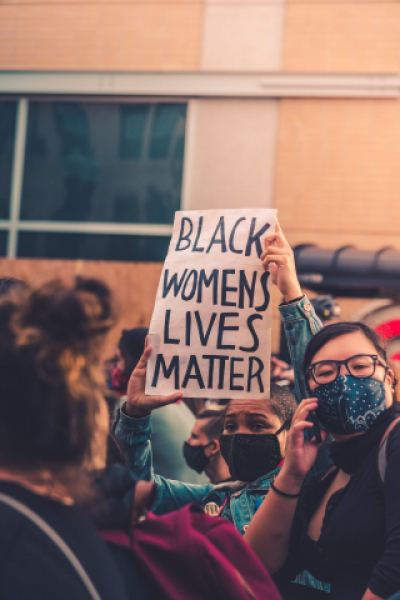Black Women and Cooperativism

One of the highlights of the first week of the online Liviana conference was a panel ‘The Black Social Economy: Black Women and Cooperativism in the Americas and Beyond’ organised by Professor Caroline Shenaz Hossein from York University in Canada.
Professor Hossein’s introduction included an acknowledgement of the unceded territories on which the conference was taking place, and recognition of ancestors who toiled the land and those who continue to toil under unjust conditions.
Professor Hossein also outlined how the panel was part of an ongoing conversation “to forge a connection between what our people have been practising for many years and more recent community economies thinking and practice.”
The first paper in the panel was presented by Professor Zahra Ahmed from St Mary’s College of California and was based on research investigating the individual and collective experiences of a family of Black women who had all engaged with Nation of Islam in Southern California at some point, and whose life choices and how they ‘show up’ in the world had been shaped by their encounter with the Nation of Islam.
Dr Ahmed reframed the Nation of Islam program as a Social Solidarity Ecology comprised of spiritual, social, economic and political elements which offered a foundation for solidarity between black people and a means of resistance to racial capitalism and white supremacy but also had narrow conceptions of gender, race and sexuality which was insufficient for the needs of Black women.
Dr Ahmed characterised the way that the Nation of Islam program had been integrated into the women’s lives through the phrase ‘take the best, leave the rest.’
The second presentation was by Natalie Wood from George Brown College and York University, who is a Social Innovation Hub co-founder, visual and media artists, and PhD student.
Wood’s presentation was based on her PhD research into the impact of a university-based Social Innovation Hub on black women students who participated in the program, and she described how the Hub, with its focus on economic and social justice, provided an opportunity for budding social innovators, social entrepreneurs and community leaders to develop their ideas in a space of solidarity and support.
From the stories of 81 ‘hubsters,’ Wood gave a snapshot into just a few of the initiatives including SafePod a social enterprise that helps businesses, especially those in the hospitality sector, build a culture of consent, inclusion and diversity; Black Lotus Mental Wellness which runs yoga and other wellness programs for people of colour; and the Living in Black Excellence project whose activities included the initiation of an anti-racism policy at George Brown College.
The third presentation was by Tatiane Reis whose nascent research project is focusing on small-scale women farmers in Southern Africa and the social and solidarity economies which provide the basis for their activities.
Reis emphasised the prevalence of small-scale women farmers in contexts such as Southern Africa and the important role played by grassroots organizations such as the Eastern and Southern Africa small-scale Farmers Forum (ESAFF) a farmer-initiated, farmer led and farmer-owned initiative which provides a collective voice for farmers, and regional organisations, such as the International Co-operative Alliance which can help to strengthen agricultural cooperatives by providing support and training.
The final presentation was by Dr Silvane Silva from Sao Paolo Brazil was about the role of quilombola women in the struggle to maintain their identity and ways of life including by having the Brazilian constitution recognise the rights to ownership of lands historically occupied by Black people.
In her research, Dr Silva found that women’s resistance was shaped by two co-existing philosophies, the idea of Buen Vivir which she traced to the Indigenous populations of Latin American and the concept of Ubuntu from the Tzosa and Zulu Bantu peoples which takes a non-individualistic approach.
Dr Silva described how these two philosophies were expressed in phrases such as ‘here in quilombo there is no self, there is us’, and how these philosophies were also challenged by recent developments such as the growth of Pentecostal churches and environmental preservation legislation which threatens to displace quilombola communities.
The Liviana conference has been organised by the Community Economies Institute and it features a series of talks and events by members of the international Community Economies Research Network (CERN).
Jenny Cameron
Photo by Max Bender on Unsplash
